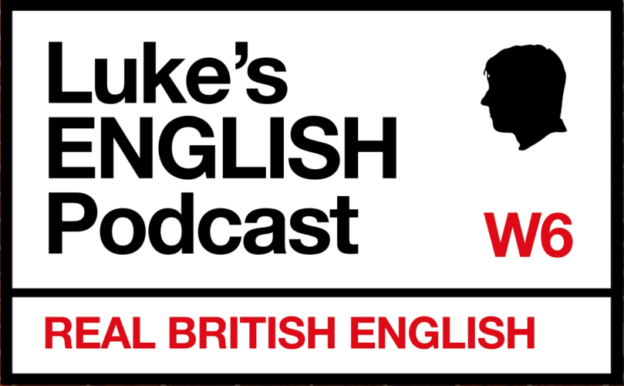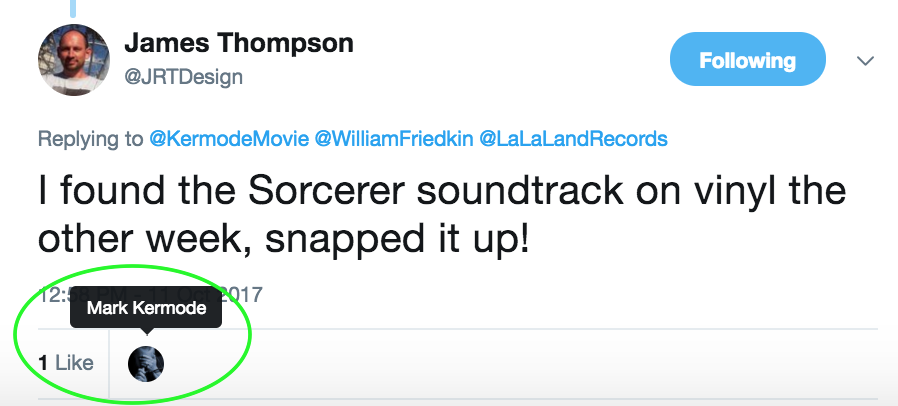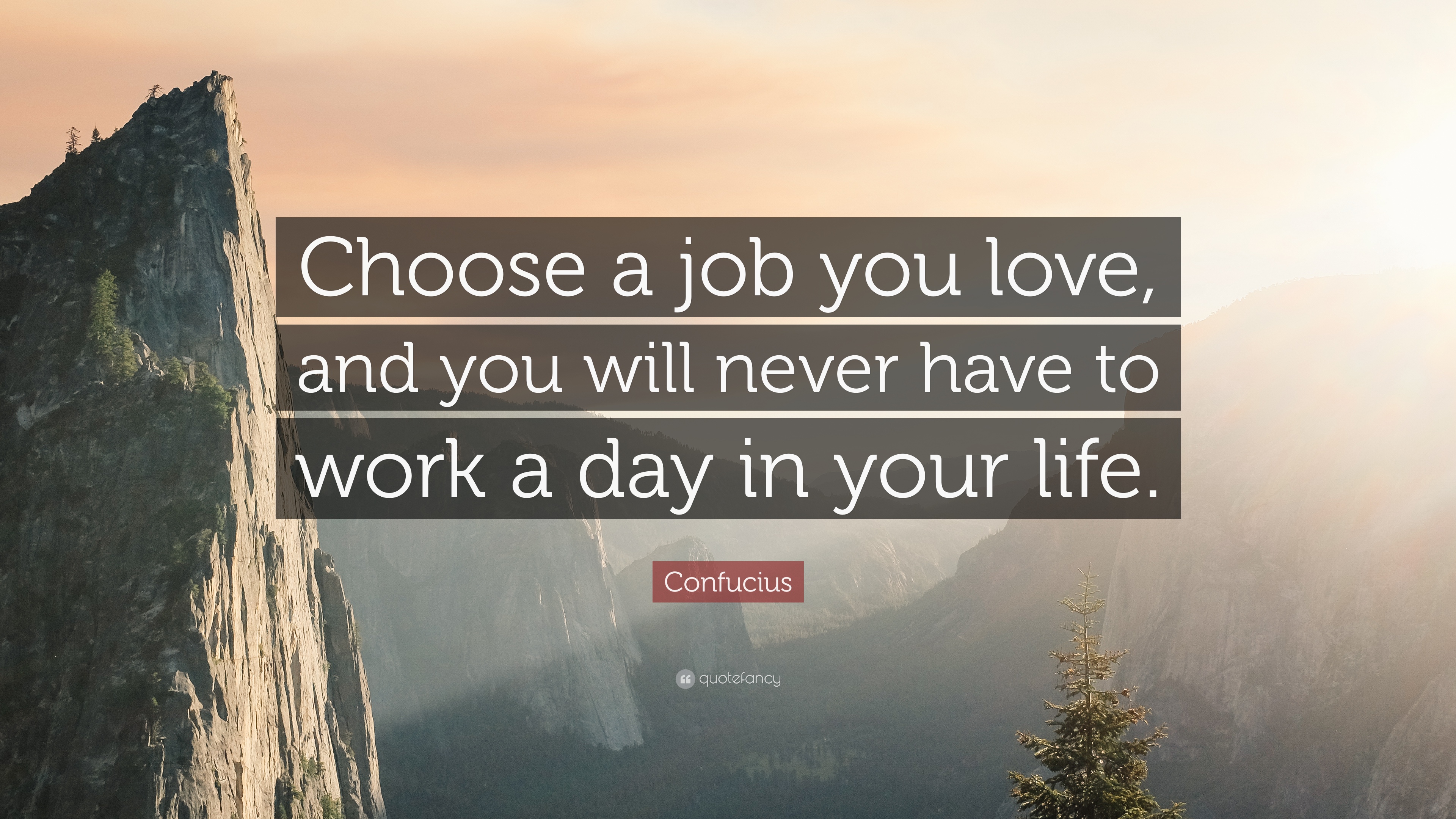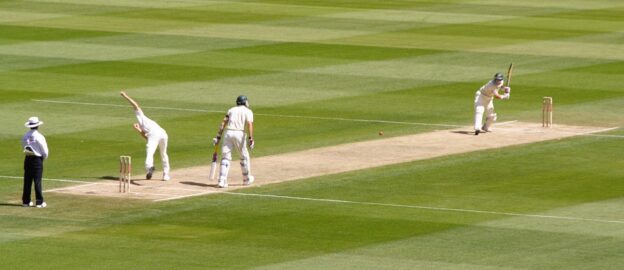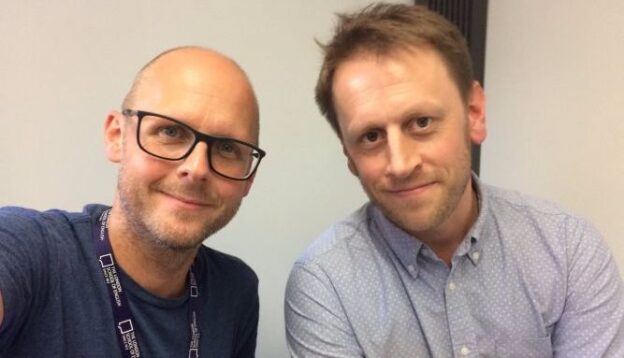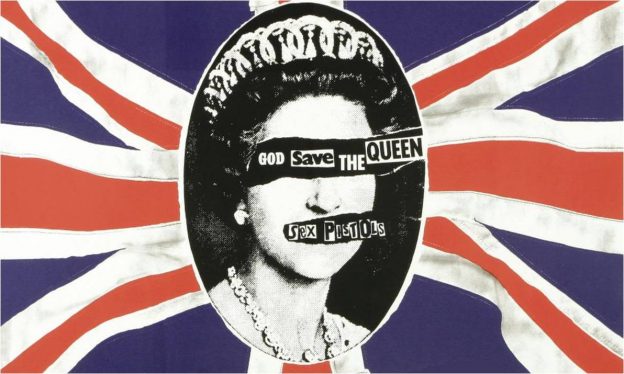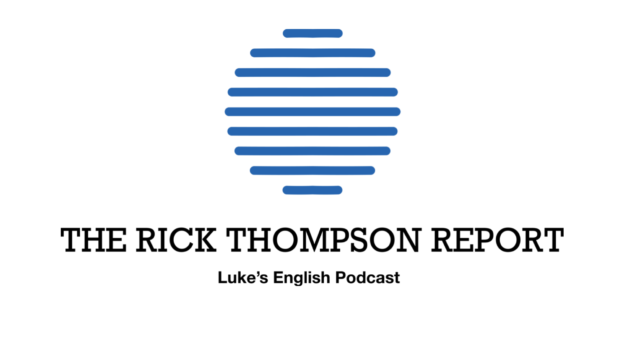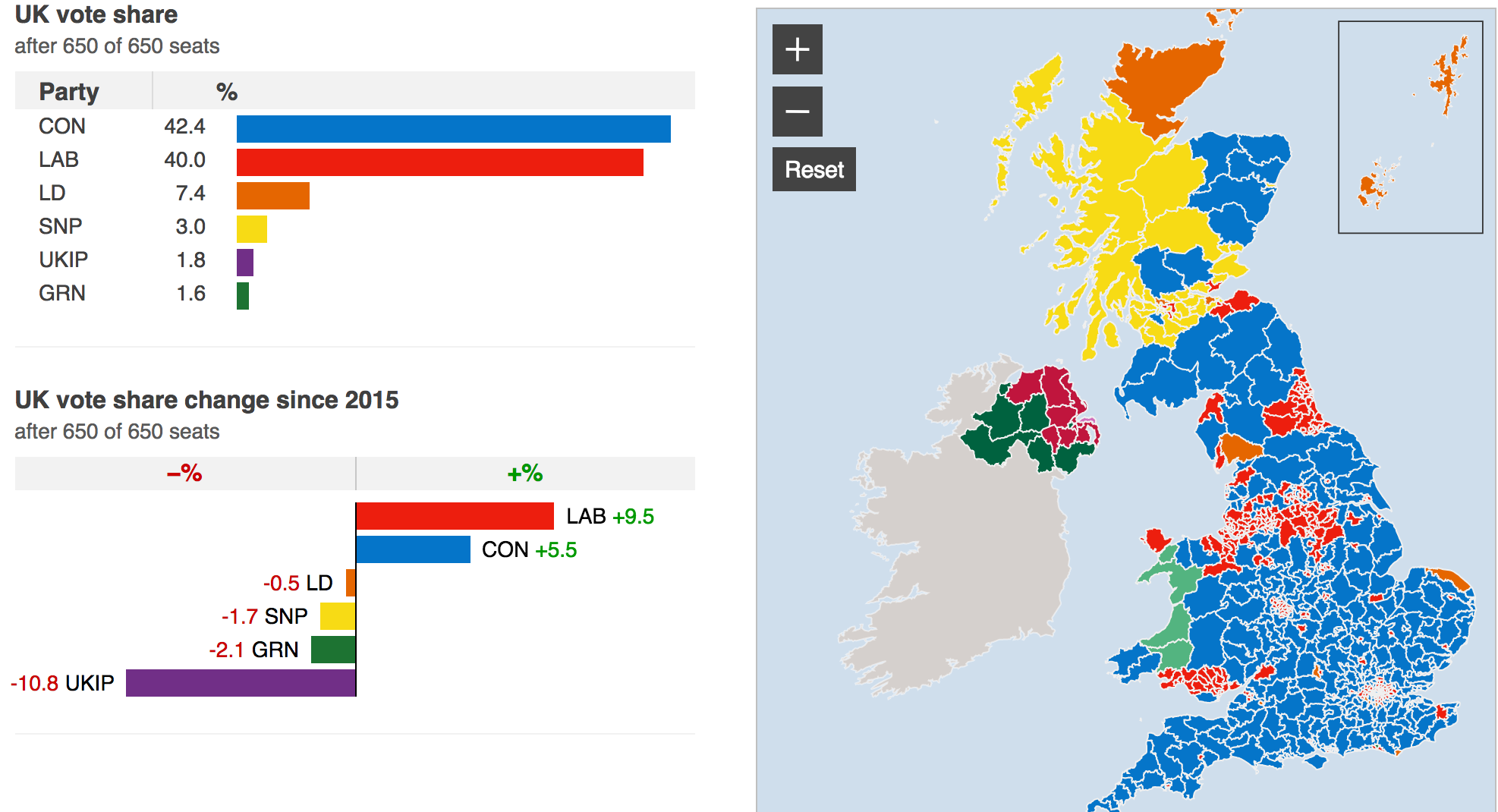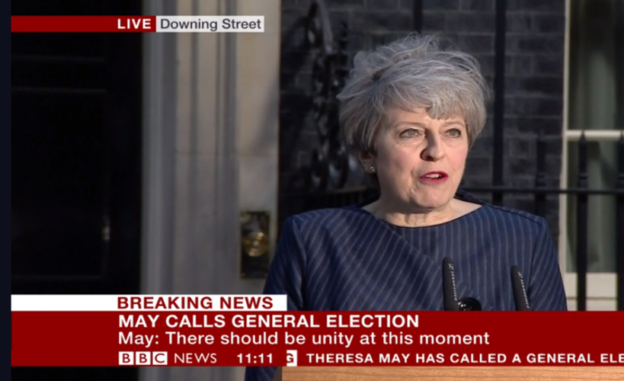Here’s part 2 of this conversation with my Mum in which you can hear us wittering on about the bookshop where Mum works, some of the books she’s read recently, and some of her podcast and film recommendations. Vocabulary is explained at the end, and there’s a vocabulary list with definitions available below.
![]()
[DOWNLOAD]
Vocabulary List
- we’re proud of our shop, we take a great pride in it (or ‘take pride in it‘)
- to be proud of something / to take pride in something. ‘To take a pride in something’ is less common.
- Alan Bennett and Geoff Boycott impressions (quite bad ones)
- Talking about Beyond The Fringe – a comedy group from Cambridge and Oxford Universities
- second-hand books / used book
- We get a lot of cook books – books with recipes in them
- A lot of celebrity biographies and autobiographies
- a biography = the story of someone’s life, written by someone else
- an autobiography = the story of someone’s life, written by that person
- A lot of the books I’ve been reading are quite obscure
- obscure = known only by a few people
- The Citadel by A J Cronin
- A lot of problems were caused by infrastructure, like the sewers
- infrastructure = the basic facilities such as transport, communications, power supplies, and buildings, which enable a town, city or country to function. (Collins Dictionary)
- sewers = the underground tunnels that carry all the toilet waste (i.e. the
pissandshit) away
- Lots of enteric diseases
- enteric diseases = diseases caused by unclean water
- Entirely preventable diseases, but not easily treated
- to prevent a disease = to ensure that a disease never infects people
- to treat someone / to treat a disease = to give treatment to people who are suffering from a disease
- to cure someone = to make a disease disappear completely, through treatment
- They find the sewer and they blow it up so the authorities have to replace it
- to blow something up = make something explode
- How did they blow it up? With a bomb? With some sticks of dynamite.
- a bomb = an explosive device
- sticks of dynamite = things that look a bit like candles but they explode because they’re made of nitroglycerine (not wax) and have a fuse (not a wick)
- It starts out with this man who starts out being incredibly idealistic and wanting to improve things and he gradually gets worn down by the system and ends up becoming one of these quacks who gets himself popular with people who have lots of money and treats them for things they haven’t really got, before he’s finally brought up short
- to start out = to start from the very beginning
- to be idealistic = to base your behaviour on certain ‘ideals’ or ‘principles’ even if it’s impractical or unrealistic. It’s a bit similar to ‘naive’.
- to get worn down by something = to become weaker because of difficult experiences over time
- a quack = a fake doctor
- to bring someone up short = to suddenly stop someone doing something, often with a surprise
- to be brought up short (passive version) = to suddenly be stopped (by something) in what you are doing, often with a surprise
- It’s quite moving = makes you feel a strong emotion
- There’s this character arc of this guy who starts out innocent and gets seduced by the money
- a character arc = a narrative or storyline for a particular character which changes from the start to the finish
- There’s lots of parallels (with today)
- parallels = similarities
- there’s a lot of parallels / there’re a lot of parallels
- It espouses socialist ideas
- to espouse something = to support it (usually a way of life)
- Mothering Sunday by Graham Swift
- This one is very short. It’s a novella.
- a novella = a short novel
- It’s a tiny book but it contains a heck of a lot
- a heck of a lot (of something) = a lot (but emphasised with ‘a heck of’ – also ‘a hell of a lot’)
- It’s about class, it’s about post-traumatic stress after the First World War, it’s about families losing sons
- PTSD or post traumatic stress disorder = emotional distress or shock which continues in your life after experiencing extreme danger or stress. It’s common in soldiers who have experienced the shock of combat in war.
- If English is your second language it can be a bit of a slog sometimes to keep going (reading)
- a slog = a long, difficult and tiring experience
- The Old Man and The Sea by Ernest Hemmingway is a short book
- Tinker Tailor Soldier Spy (film) – it’s not really about spying (says Mark Kermode)
- The Adam Buxton Podcast (especially episodes with Louis Theroux)
- People say he (Louis Theroux) is faux naive. He comes across as innocent so he has to ask questions to find out what’s going on.
- to be faux naive = ‘fake’ naive – pretending to be naive
- to come across as something = to give an impression of something – e.g. he comes across as a really nice guy (he gives the impression of being a nice guy). Tom Cruise comes across as being a really friendly, fun and hardworking person. I wonder if he is like that in real life. I expect he is hardworking, but I wonder if he really is that friendly and fun all the time.
- He looks a bit dorky, goofy, geeky.
- All these are words to describe someone who is not cool. They’re very similar yet slightly different in meaning.
- dorky = unfashionable, awkward, not socially relaxed and laid back, a bit uptight and uncool.
- goofy = just a bit ridiculous, but also in appearance – perhaps with teeth that are sticking out or big glasses, big ears – ridiculous looking features. Think of Goofy from the Disney animations.
- geeky = interested (maybe obsessed) by things like computers, comics, science fiction rather than people. (Louis Theroux definitely isn’t a geek, but he comes across as geeky)
- He’s quite tall. He’s a bit gangly. His arms and legs are very long.
- gangly = a description of physical appearance – tall and thin with an awkward appearance and a clumsy manner
- He’s got this awkward Britishness.
- Awkward is a word that comes up a lot in my conversations. I often say that British people seem awkward, that I felt awkward in a situation, or that a particular situation was awkward. Louis Theroux can be described as having awkward Britishness.
- Awkward = uncomfortable, not completely relaxed and loose, a bit embarrassing, a bit shy
- Do you fancy him?
- to fancy someone = to find someone physically attractive, in a sexual way (but this is the sort of word that teenagers use)
- He’d spend time with all sorts of weird fringe groups
- fringe = edge
- fringe groups = groups that exist on the edge of society, e.g. cults, religious sects, conspiracy theorists, extremists etc
- His naive awkward English friendliness is very disarming and as a result people open up to him
- to be disarming (adj) = to make people less hostile or aggressive, perhaps by being charming.
- to open up (to someone) = to become more open and revealing with people, e.g. to start talking about personal things
- The Year of Reading Dangerously by Andrew Miller
- He’d lost the knack of being able to read for pleasure
- the knack of doing something = a particular and skillful way of doing something. E.g. There is a certain knack to closing the bedroom door silently in my flat. You have to pull the handle down, pull the door in slowly, let the handle go back and then pull the end of the handle until you hear a little ‘click’. There’s a knack to doing it. In this case, my dad has lost the knack of being able to read for pleasure. ‘to lose the knack of doing something’ is a common way to say that you have lost the specific ability to do a certain thing.
- Steve Earle – I’ll Never Get Out of This World Alive (book)
- (It’s about) a doctor in the 1960s who was a junkie
- a junkie = a drug addict (especially heroin)
- It was a redemptive tale, a story of redemption
- to redeem yourself = to change from a life of sin/evil/immorality to a life of good
- redemption = the process of being redeemed
- a redemptive tale = a tale of redemption
- Trainspotting 2 (actually called T2: Trainspotting)
- They’re all addicted to heroin, and it’s really grim.
- grim (adj) = unpleasant and depressing
- It’s directed by… whatsisname, whatdoyoucallim, whojumaflip… Danny Boyle!
- these are all words for when you can’t remember someone’s name
- His style – it’s very in-your-face, intense, visceral…
- in-your-face = bold, direct, aggressive, assertive, intense
- visceral = relating to strong feelings, emotions
- I was streaming with tears by the end of it
- streaming with tears = tears were running (streaming) down her face
- Book: Trainspotting by Irvine Welsh (written in a dialect)
- When there’s no more time:
- The time is getting on and we really ought to draw it to a close
- We’ve run out of time
Those author, comedy, book, film and podcast recommendations again
- Alan Bennet (author)
- Victoria Wood (comedian)
- Beyond the Fringe (Comedy group)
- Peter Cook and Dudley Moore (LEP episode 172)
- The Citadel by A J Cronin (book)
- Mothering Sunday by Graham Swift (book)
- The Old Man & The Sea by Ernest Hemingway (book)
- Tinker Tailor Soldier Spy (film)
- The Adam Buxton Podcast (especially episodes with Louis Theroux)
- Louis Theroux’s Weird Weekends (and other documentaries)
- Backlisted Podcast
- The Year of Reading Dangerously by Andrew Miller (book)
- Steve Earle – I’ll Never Get Out of This World Alive (book)
- T2: Trainspotting (film)
- Trainspotting by Irvine Welsh (book)
